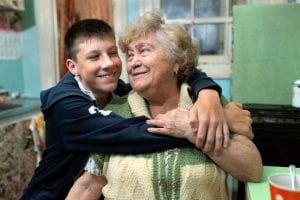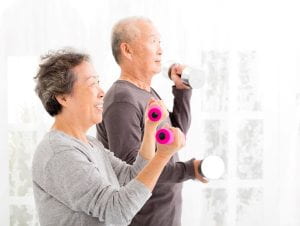
Research clearly establishes that racism takes a toll on the mental and physical health of African-Americans. This occurs because racist interactions elicit an automatic physical stress reaction that includes increased heart rate, breathing, and blood pressure, along with a release of stress hormones. This stress response, often referred to as the flight-or-flight response, leads to inflammatory reactions in the body. [Read more…]

 In modern society, most of us live in silos surrounded by people similar to us; this applies across many factors including race and ethnicity, socioeconomic status, and age. In fact, young people and even middle-aged adults today have less contact with older adults than ever before in human history.
In modern society, most of us live in silos surrounded by people similar to us; this applies across many factors including race and ethnicity, socioeconomic status, and age. In fact, young people and even middle-aged adults today have less contact with older adults than ever before in human history. 
 More than six million Americans suffer from Alzheimer’s disease or dementia, and that number continues to grow significantly as the U.S. population ages.
More than six million Americans suffer from Alzheimer’s disease or dementia, and that number continues to grow significantly as the U.S. population ages.

 In much of North America, it officially feels like fall. Temperatures and leaves are dropping, and the fall rituals of football games, Halloween, and pumpkin spice-flavored everything are in full swing.
In much of North America, it officially feels like fall. Temperatures and leaves are dropping, and the fall rituals of football games, Halloween, and pumpkin spice-flavored everything are in full swing.
 It’s well-documented that exercise is good for you.
It’s well-documented that exercise is good for you. 



